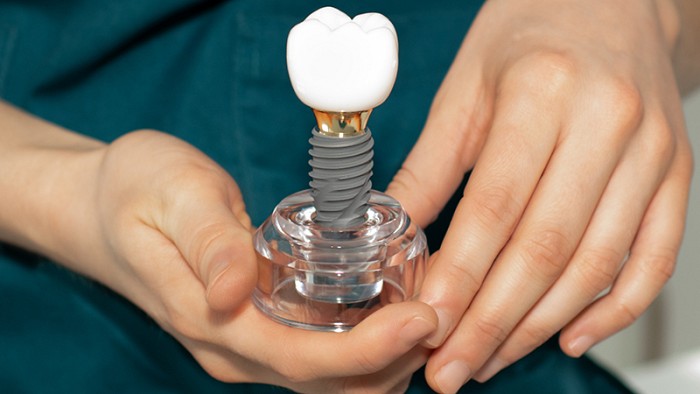How to Care For Dental Implants So They Last Forever

One of the reasons why so many dentists and patients choose dental implants is because of how easy they are to care for. When caring for dental implants, the most important thing to remember is to keep the gum tissue and supporting jawbone healthy so it stays in place.
Fortunately, this is easy to do if you keep up with your oral hygiene and regular check-ups with your dentist.
Risks of Not Taking Care of Implants
Implants can develop issues without consistent daily care. Bleeding is usually the earliest sign of a problem. This condition is known as mucositis. The current research suggests that this may be successfully treated and is reversible if caught early. Unfortunately, if it progresses to bone loss, also known as peri-implantitis, that is not a reversible condition. If peri-implantitis is not treated, it can lead to advanced bone loss and the implant loosening or even falling out.
Because dental implants are artificial, it is impossible for the implant itself to decay or develop a cavity. However, the longevity of the dental implant can be in jeopardy when gum tissue around the implant becomes inflamed. This kind of infection is known as implantitis. Implantitis affects the soft and hard tissues surrounding dental implants.
During the inflammatory process, dental implants can become covered in the same destructive bacteria that cause periodontal infections in natural teeth, and if left undisturbed, these bacteria can form dental calculus. Calculus is a rough, hard deposit that can eat away at the supporting gum and bone that surround the implant and hold it in place in the jaw. Once calculus has established itself, this deposit cannot be brushed or flossed off and can only be removed by a dental hygienist. Failure to do this can lead to receding gum tissue and bone loss and may result in the implant falling out.
Easy Care for Dental Implants
To avoid the formation of calculus, dental implants should be kept clean and plaque-free by brushing twice a day and flossing. Cleaning your teeth after meals is especially important. This is accomplished by gently brushing with an ADA-approved toothbrush, giving special attention to all sides of the implant.
Mnotclair Double A Dental Group advises using the following:
- Small, soft, ADA-approved manual toothbrush or an electric brush
- Low-abrasive, tartar-control toothpaste
- Dental floss for cleaning around the implant
- Antimicrobial mouth rinses
Not only should you perform dental hygiene at home daily, but you should also schedule regular dentist visits. It is recommended that you have a professional exam and cleaning every 3-6 months. You should also have your dental implants examined by X-ray annually.
